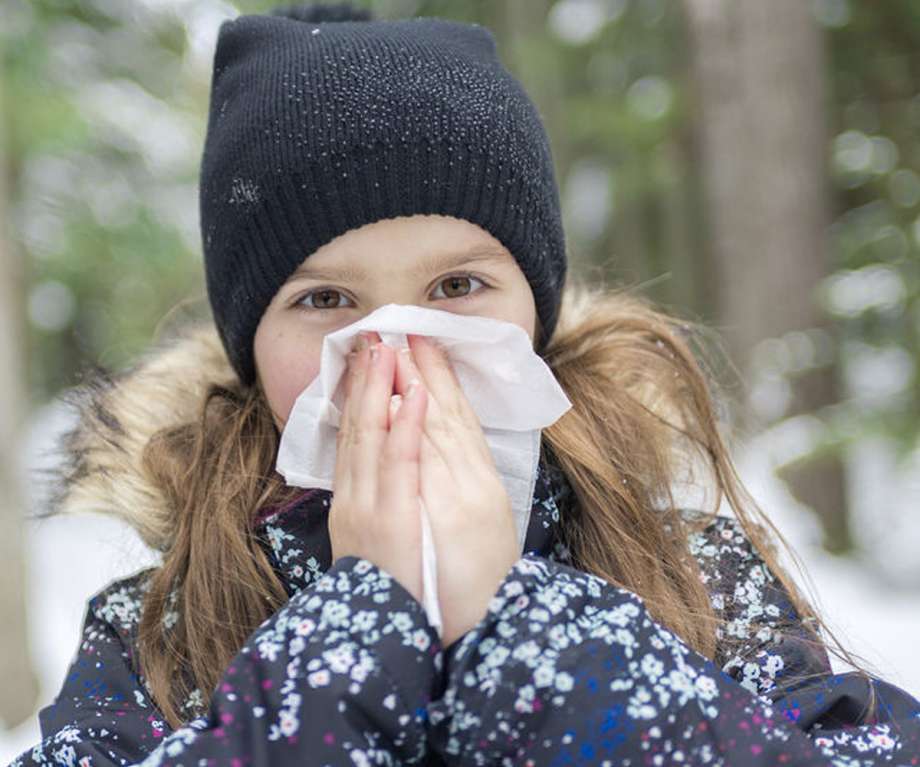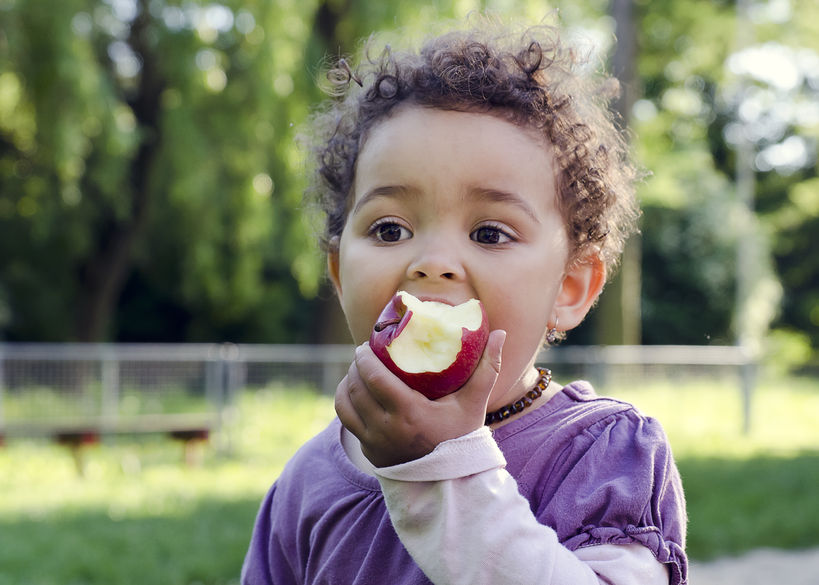Cold and Flu Season: Are You Feeding Your Kids Right?

If your kids are anything like mine, once the cold weather hits, their noses become little snot-faucets. From October to April, it's one cold after another. We've dealt with everything from sniffles to full-on respiratory infections.
Cold and flu season is tough for little guys, especially since their immune systems are still learning how to fight off germs.
Of course, the best way to keep your kids healthy is to make sure they get plenty of sleep, plenty of fluids and a diet rich in a variety of vitamins, minerals and whole grains.
More: 10 Simple Ways to Prevent Colds and the Flu
I know. I know. Right now you're all like

But hear me out.
I'll give you the lowdown on which foods to include, what doesn't actually work, and tips on how to sneak them into their meals.
Foods to Include During Cold and Flu Season
First of all, let me just put it out there. The best way to prevent the flu is to get the flu shot. Okay, now we can talk about food.
We all know that fruits and vegetables are a great source of vitamins and minerals. While all vitamins and minerals are important in different ways, not all of them prevent or help fight colds and the flu. In fact, some of the old standbys our parents used don't actually work.
Here's the skinny on the most common nutrients for colds and flu and what they actually do:
Vitamin C
found in strawberries, oranges, potatoes, bell peppers and raw leafy vegetables
For decades vitamin C has been the go-to nutrient to prevent and treat colds. But, according to Mayo Clinic, it may not be doing much.
It's not all bad news, though. While more recent studies show that vitamin C can't really prevent colds, it can help shorten them, if you take it when symptoms start.
The great thing about vitamin C is that it's found in all kinds of sweet fruits that kids love. Blend up a fruit smoothie, which will feel great on a sore throat. If your kids are into salad (we can dream, right?), check out our recipe for Strawberry Mango Salad.
Vitamin E
found in milk, sunflower, corn and soybean oils, avocados and eggs

About 15 years ago, vitamin E was given to a certain nursing home population to study its effects on cold and flu prevention. It seemed, after the study, that those who took it didn't get sick as often. While the research was promising, it was in no way definitive.
That said, vitamin E does boost the immune system in general, and protects it against free radicals. So, giving it to your kids in healthy doses isn't a bad idea.
Fun fact: Vitamin E is best absorbed by the body when eaten with fatty foods. Eggs have both fat and vitamin E. Giving your kids scrambled eggs or an omelette with lots of cheese kills two birds with one stone.
More: Vitamins and Minerals for Babies
Beta Carotene
found in sweet potatoes, carrots, spinach, cantaloupe and winter squash
In the body beta carotene converts to vitamin A, another key nutrient that boosts your immune system. You'll find it in any orange or yellow fruit or veggie.
That means you've got lots of options when it comes to feeding your kids. Try sweet potato fries with dinner, or cantaloupe slices for breakfast. I mince carrots and hide them in pasta sauce. It makes the sauce nice and sweet.
Zinc
found in meat, fish, shellfish, poultry, dairy products, dry beans, nuts and grains
There's a lot of back-and-forth about the real benefits of zinc when you're sick. Like vitamin C, it doesn't seem to prevent illness, but it does shorten the duration of colds and flu.
For this one, definitely stick to zinc found naturally in foods. Zinc lozenges are too much for little bodies.
In fact, with all of these vitamins and minerals, consult your doctor before using supplements or feeding your kids a large amount of any kind of food.
If your kid is already in the thick of a cold or the flu, these foods are not likely to do much. In that case, check out our 7 home remedies to ease colds and the flu.
You can also check out our video on common remedies.